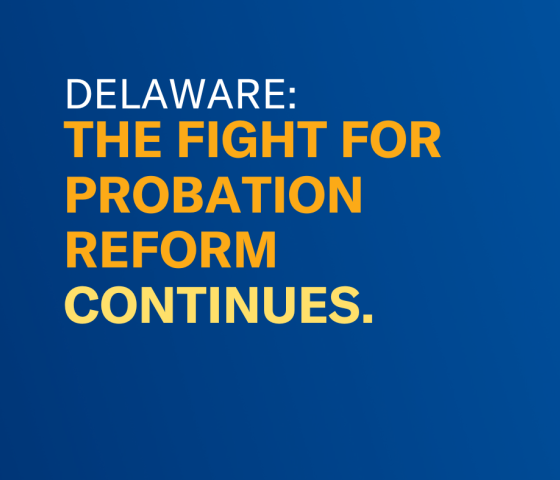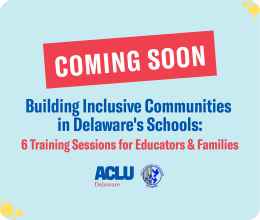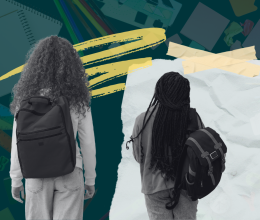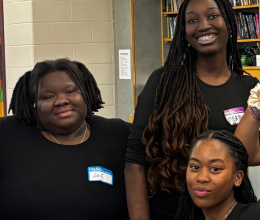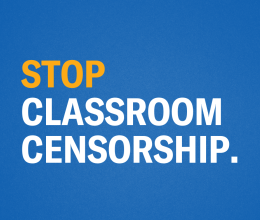Understanding the Discipline Cycle: Analyzing Discipline Data & Disrupting the Disciplinary Cycle
Developed by Shannon Griffin, M.S.
This session is designed to allow participants to understand how the disciplinary process works and its impact on school climate. The session will also focus on identifying strategies to support development of inclusive school communities.
Prepare for this session:
- Review Practice Notes developed by Carina Avila. Rethinking discipline to improve school climate. UCLA Center for Mental Health in Schools.
Accessed online 9/5/2019. smhp.psych.ucla.edu - Review Delaware School Discipline Program Report
Session Objectives:
- Provide context for rethinking zero-tolerance discipline practices.
- Determine a participating school’s overall approach to discipline – Traditional (reactive/exclusionary) vs. Restorative (proactive/preventative).
- Review the school’s discipline data to identify positive trends, areas of concern, and associated persistent inequities.
- Identify ways to interrupt punitive, exclusionary discipline practices.
A Suggested Icebreaker or Introductory Activity: My Best Stage of Life
If you could remain in one stage of life for the rest of your life, would you choose Childhood, Adolescence, Young Adulthood, Mature Adulthood, Senior Adulthood. Participants raise their hands to vote for their choice. Select one or two people with hands raised for each to say why. The workshop leader ends the activity by saying to which group he/she belongs and provides info on his/her own preference and how it is shaped by experience and background.
Session Activities for Educators and Parents:
Guided Conversation #1: Review your school’s discipline profile
- Break into groups to complete the Discipline Data Report. Use newsprint or a poster to record the following:
- Identify rates of Out of School Suspension (OSS) and rates of In School Suspension (ISS).
- Identify different rates of suspension among subgroups.
- Identify subgroups with the highest & lowest rates of suspension
- Identify where most referrals occur and their duration
- Identify time periods when referral rates are higher and lower
- View and discuss video When School Discipline Means Getting Locked Up
- Could Vaeziah’s story occur in your school?
- If not, what policies/practices protect students from life-changing, punitive disciplinary actions?
- Discuss your school’s process for resolving conflicts
- Student to Student
- Student to Educator
- Student to Family Member (home situations)
Guided Conversation #2: Look Behind the Data
- What positive trends do you notice?
- What accounts for changes in the suspension/expulsion profile of your school?
Guided Conversation #3: Areas of Concern
Consider the Case of Marvin and Michael
- What characteristics identify students with the highest rates of suspension?
- How are these students generally perceived by teachers and administrators?
Guided Conversation #4: Rethinking Discipline Creating Inclusive School Climates
- View School Suspensions are an Adult Behavior Ted Talk by Rosemarie Allen
- Rosemarie Allen describes many instances from her childhood when she was suspended from school. Yet, today she is Dr. Rosemarie Allen, and a noted education expert.
- Her story reinforces guidance on how to enable resiliency in students. What specific actions/activities would you encourage your school community to put in place? Click here to read more of Dr. Allen’s personal story.
- View Repairing Our Schools Ted Talk by Jean Klasovsky
- What strategies might schools pursue to ensure that all students feel welcomed, respected, and valued?
- How might talking circles work in your classroom?
- Would you advocate for the addition of a Caring Room perhaps to replace the In-school Suspension room?
- How might students be engaged in creating and maintaining a positive and inclusive climate?
- How might parents, community and family members be included in this process?
A Concluding Conversation:
Allow each school team to meet to record their preliminary ideas for putting the session content into action. Each school team is assigned to complete the Moving from Talk to Action form. Go to schoolclimate.org, click the Publications tab and go to the Summit page.
Homework Assignment: Moving from Talk to Action
Team members should view the clips from the Problem of Practice Panels. Identify one or more ideas presented in each panel that they will share within their school communities (teachers to teachers and parents to parents) as promising practices that the school might embrace to improve Safety, Engagement, and Inclusion.
What new or modified discipline strategies will the team recommend for their school’s plan? Consider a single strategy that might support development of supportive, respectful, trusting relationships.
A Journaling Prompt:
Describe a situation or a time in your life when you felt excluded. Did you overcome the isolation and remain in the environment? What prompted you to remain or to leave?
To Learn More:
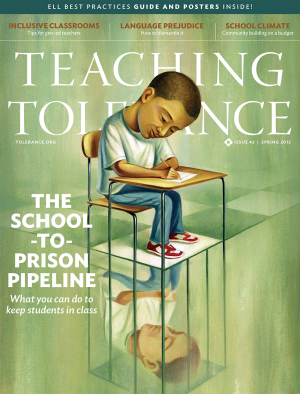 This issue of Teaching Tolerance features a Toolkit: A Teachers Guide to Rerouting the School to Prison Pipeline.
This issue of Teaching Tolerance features a Toolkit: A Teachers Guide to Rerouting the School to Prison Pipeline.

